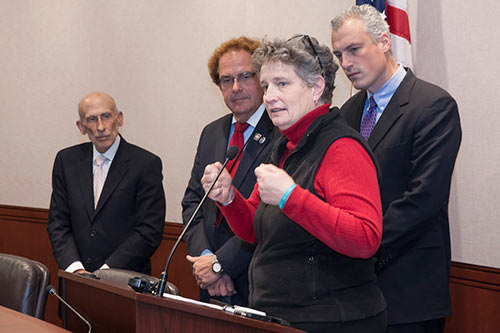Larson: Renters’ One Step Closer to Receiving Rebate Checks
Older and disabled renters are one step closer to receiving their state rebate checks after the state senate voted 34-0 to fix technical issues with the Connecticut Renters’ Rebate Program. The bill was immediately transmitted to the House of Representatives where it is expected to pass on Wednesday.
The Connecticut Renters’ Rebate Program provides rebates to older adult or totally disabled renters whose incomes do not exceed certain limits. The biennial state budget passed last month set aside $12.685 million in 2018 and $13.666 million in 2019 for the program, which has traditionally been managed through the state Office of Policy and Management (OPM) in the executive branch.
“Supporting programs that serve our older and disabled citizens in Connecticut, like this renters rebate initiative, has always been and continues to be a priority for me,” Senator Tim Larson (D-East Hartford) said. “I’m pleased the Senate was able to handle this quickly so this program can continue helping thousands of citizens stay in their communities.”
Estimated FY 17 Renters’ Rebate Program Payments in Sen. Larson’s Senatorial District:
- East Hartford: $525,306
- East Windsor: $90,044
- Ellington: $56,816
- South Windsor: $90,175
Qualified individuals can apply to their local assessors once a year between April 1 and October 1 for state reimbursement for rental payments that they made in the preceding calendar year. Persons renting an apartment or room, or living in cooperative housing or a mobile home, may be eligible for this program.
Renters’ rebates can annually be up to $900 for married couples and up to $700 for a single person. The rebate amount is based on a graduated income scale and the amount of rent and utility payments (excluding telephone) made in the year prior to the calendar year in which the renter applies.
Renters’ rebate recipients are generally 65 years old or older, or 18 years old and permanently and totally disabled; they must also meet a one year state residency requirement.
